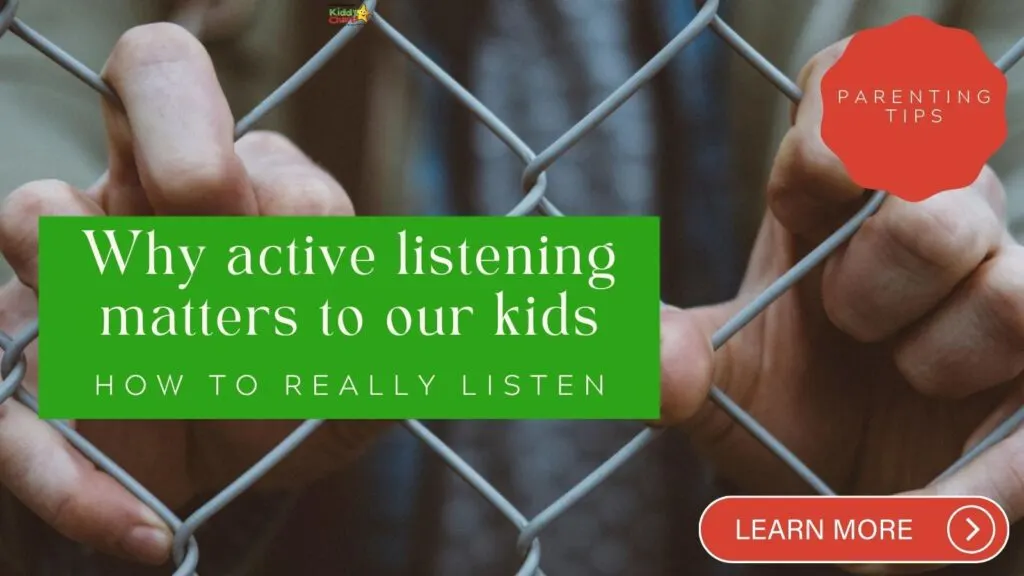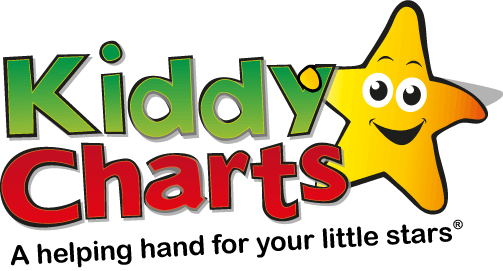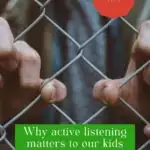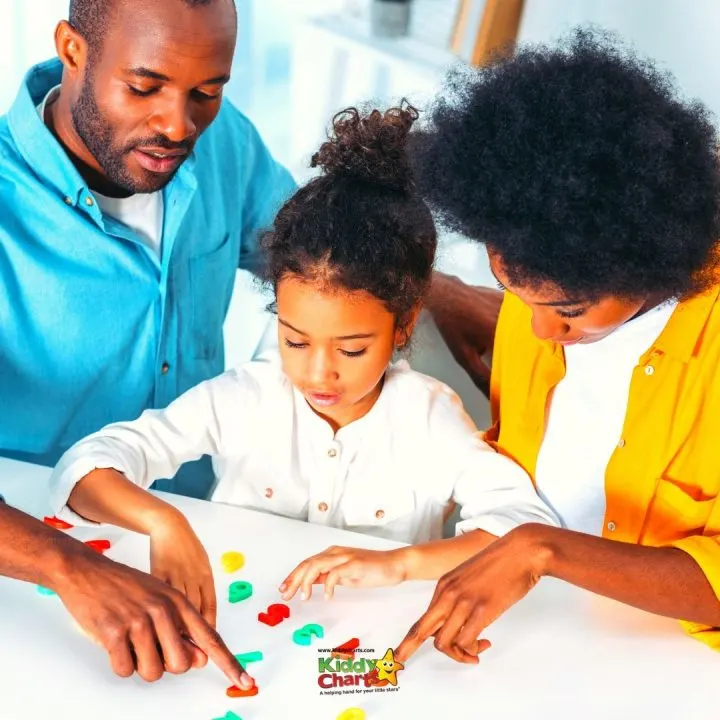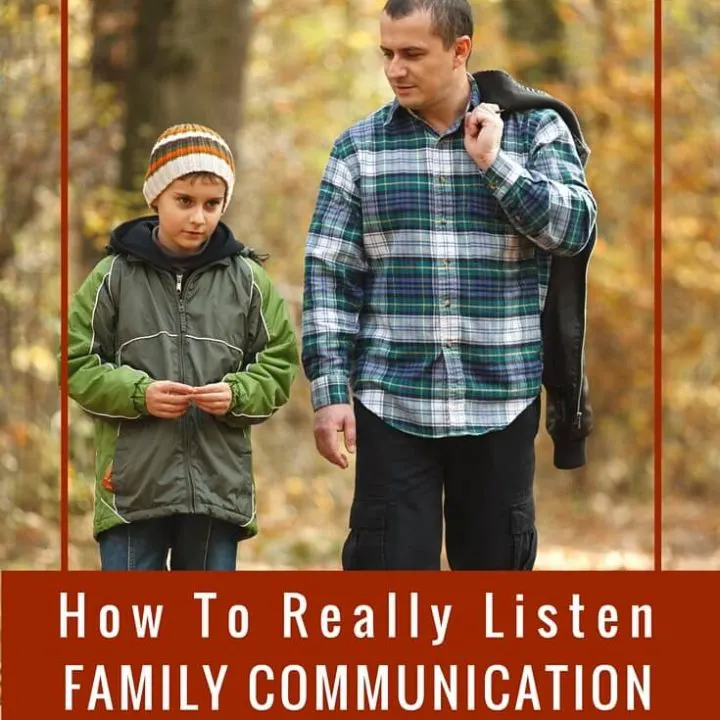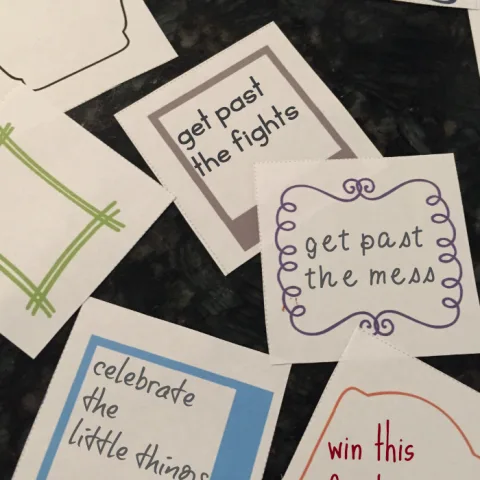We have been chatting about life coaching for kids on KiddyCharts, and one of the key skills within coaching as a parent, is to really understand how to LISTEN to our kids. The importance of listening to our kids cannot be underestimated as a parent, yet most of us don’t know how to do it effectively.
We are going to try and help you all with that today…

This is advice taken from Pam Richardson’s book Coaching for Parents, where Pam helps us all to become our own children’s coaches, so that we can guide them to make their own capable and effective choices in life.
1. Preparing to listen
If you think of listening as part of the foundation of effective coaching, then the first step is to clear a space.
Living in the 21st century is so hectic for many people, particularly parents, that having the space in your head to take on board any more information can be challenging. You only have to try and sit quietly for a minute to become aware of the huge number of thoughts that flash around in your mind.

However, creating a space is important in preparation for real listening to occur. This means taking control of your own thoughts so that you can focus on the person who is asking you to listen to them.
People are seeking to be listened to all day, every day, at home, at work, everywhere.
So how can you be ready realistically to listen effectively at any moment? An understanding of the situation and the speaker’s needs are essential. Casual communications occur throughout each day that may not require the same preparation as a more in-depth conversation with your child.
The nature of the topic will also help to determine the degree of preparation needed.
Eventually, listening rather than hearing becomes second nature.
Learning to let go of YOUR thoughts first: a helpful technique
To begin with the following ideas may be useful, starting with two simple things that will enhance your general well-being anyway.

If you know that your child needs to have or you need to have an ‘important’ conversation with your child:
- Do some simple breathing and stretching exercises, and
- Each time you breath out, imagine that you are letting go of your own thoughts and worries for a while. Be aware of letting go of any tension in your body at the same time
You may even think about doing the following:
- Write out a quick ‘to do’ list so that you stop dwelling on what you have to do; just for a while.
There are many ways of being prepared for listening. Experimenting to discover what works best for you can be fun. Creating your own inner space ready for listening has the effect of offering that young person some space also.
When your head is cluttered by thoughts, it is more challenging to think clearly. If the desired outcome of a communication is to make new connections, create new ideas and thoughts, then clearing a space in which this can happen is essential.
Being able to create and offer space needs practice but it is well worth the effort. The reward is enhanced communication, enriched relationships and greater creativity.
2. Barriers to listening
For listening as opposed to hearing to occur, it is essential that your own opinions and judgments are controlled or ‘parked up’ for a while. Check out our active listening checklist alongside these ideas in this article for more thoughts.

Everyone has his or her own opinions, beliefs and views of a particular topic or question. It is very easy as a listener to prejudge and interpret the speaker’s words in terms of your own opinions. It is also common to respond and colour the conversation with your own opinions. An effective coach can set aside their opinions in the first instance to listen with the intention of seeking to understand from another’s point of view. ‘Listen until you disappear’ is what I aim for when being with young people.
Experiences are your practical acquaintances with facts, feelings and events. As someone speaks, you may recognise a situation and will automatically start to hear what relates to your own experience, while making assumptions that the speaker’s experience followed a similar pattern. However, their experience of a similar event may have been entirely different and in understanding their experience, an effective parent-coach maintains focus and listens to their young person. The discipline required here is not to interrupt and to understand the power of silence. This is so important as a parent-coach.
Again, Nancy Kline, in her book ‘Time to Think’, emphasises this by saying that when the talking stops the thinking does not. When someone knows that you are truly listening to them and that you do not intend to interrupt them, a wealth of creative thinking can take place.
3. Summarising and reflecting back
Finally, the measure of how effectively you are listening can be gained through summarising and reflecting back what you have heard. If you choose to paraphrase, then the accuracy of your interpretation can be gauged by the words that you may choose to use. If these vary from those used by your young person, then checking that the essence of the communication has remained in tact is essential.
Otherwise you can end up ‘putting words in the mouth’ of your child. This can result in dishonouring what he/she is wishing to share with you, which, in turn, may impoverish the quality of the communication and hence the relationship that exists between you.

However, sometimes if you get it wrong if you are only “offering” to them what you thought they meant, there is no reason why they cannot clarify further, and your relationship won’t be affect. This can be achieved by the simple act of softening the reflection, “it sounds like you might” or “it seems as though it might” rather than “you feel”.
Offering the suggestion gives your children room to correct without it sounding like you are telling them how they feel!
4. Use of silence
Let us explore the use of silence a little more. In ordinary conversations a period of silence can be uncomfortable. The person feeling most uncomfortable will seek to fill the gap. Within effective communication, silence can be natural – there is no pressure, a parent-coach is there to listen when the young person is ready.

Silence allows uninterrupted thinking time and gives the young person the opportunity to make new connections in their mind, which can lead to new thinking patterns. As the listener, there are many ways to interpret silence. The young person may have become distracted or bored, feel depressed or disinterested. He or she may also be in a reflective mood. If a parent-coach is listening with empathy and intuition, then understanding the nature of the silence is easier, which can draw an appropriate response from the listener – to speak or not to speak.
5. Interrupting
However, when is it appropriate to interrupt? Some people can talk continuously! They may have good reason in that they need to unload information or emotions; maybe the subject is long and complicated. Equally the young person may be trying to avoid considering an issue; they may have become bogged down in descriptive detail or feel uneasy about silence. None of this supports effective communication.
An effective parent-coach needs to be careful before interrupting. Sometimes what seems irrelevant can be a roundabout way of the speaker getting to what they need to say.

Hence the need to decide whether you are listening to aimless rambling and repetition or whether there is a positive benefit likely to come from going along with the young person. If not, then an effective parent-coach intervenes respectfully. The easiest way to do this is to establish an understanding in the relationship that permits you to interrupt in order to move the conversation on more positively.
How to do this? By truly listening, you will hear a question that may be helpful for a young person to ask themselves.
That’s your in!
For more information on parenting tips, including our post of life coaching for kids, do check out the relevant section on the site. Here are a selection of them:
Here are some ideas around communication for the parents out there that are complementary to the article above.
How To Really Listen: Improve Family Communication
win at the family game: getting past the fights and mess
There are, of course, other ideas of the site too to explore as well:
Parenting tips from KiddyCharts and beyond
Helping Aggressive Kids - 10 Positive Parenting Tips
5 Overlooked, Yet Highly Effective Tips for Parenting a Strong Willed Child
10 Vital Things All Parents of Angry Children Should Know
Thanks as always for coming to see us – why not sign up to our newsletter if you like our content?
Really hope to see you again soon,
Helen
